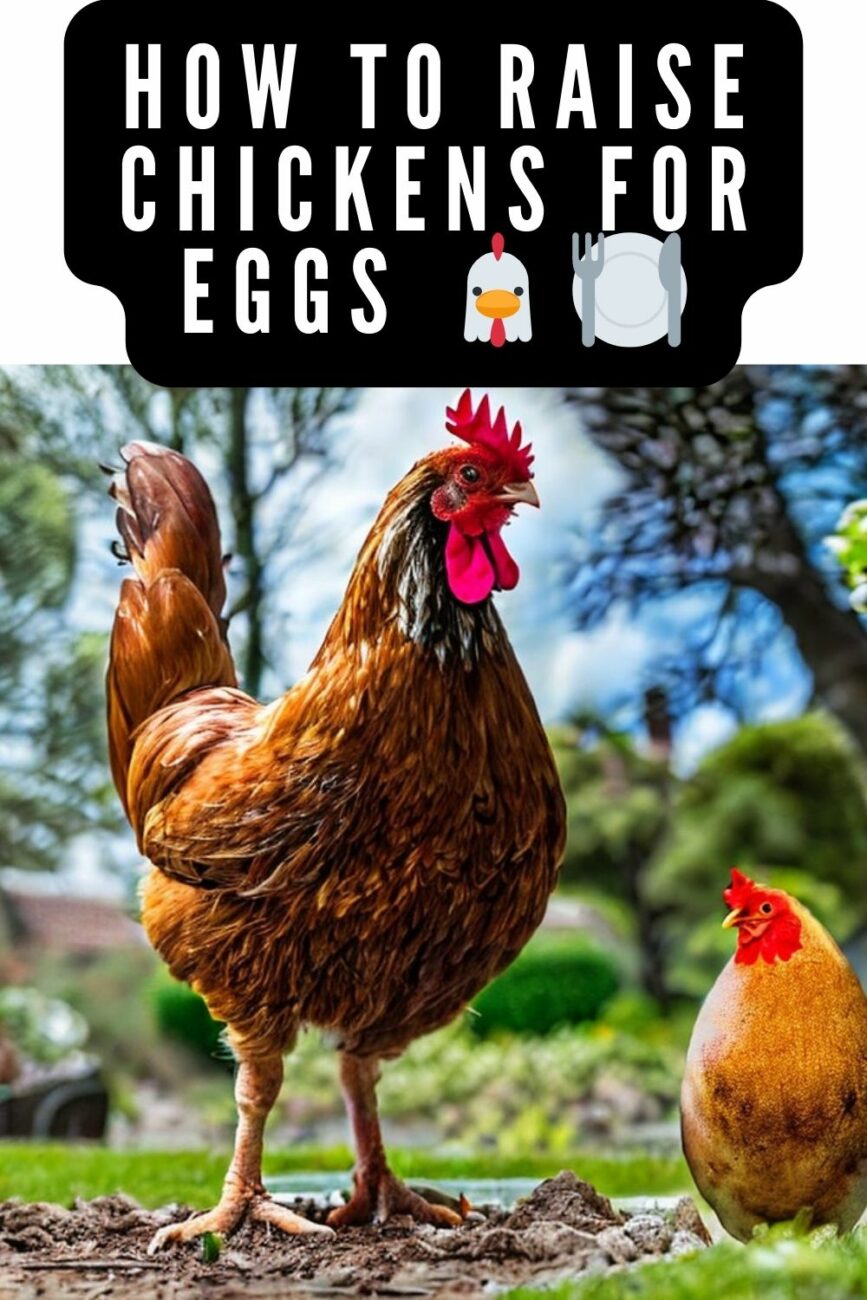Let me tell you a funny story that taught me a lot about why chickens attack sick chickens.
When I was a kid growing up on my family’s small farm, we had a flock of about 50 chickens.
One day, I noticed one of the hens wasn’t looking so hot – her feathers were all ruffled and she was moving slowly.
Being the curious kid I was, I went into the coop to check on her. As soon as I picked her up, all hell broke loose!
The other chickens immediately swarmed and started viciously pecking at the sick hen I was holding.
No matter how much I tried to protect her, they were relentless.
After that chaotic experience, I learned that when a chicken is weak or sick, the rest of the flock will often attack it – sometimes even killing it.
The healthy chickens seem to recognize vulnerability and go into survival mode, attacking the perceived threat to the rest of the flock.
It’s a brutal example of social Darwinism – the strong against the weak, for the good of the group.
Turns out chickens aren’t the compassionate, nurturing types when illness is involved!
Why Do Chickens Attack Sick Chickens? Cracking the Coop Code
| Reason | How to Prevent | |
|---|---|---|
| Pecking Order | Establishing dominance in the flock. | Provide sufficient space and distractions; monitor and separate aggressive individuals. |
| Sickness Signals | Communication of distress through body language. | Isolate sick chickens promptly; create a separate recovery space. |
| Survival Instinct | Perceiving sick chickens as a threat to the flock’s safety. | Regular health checks; quarantine new members before introducing them. |
| Environmental Stress | Overcrowded coops, sudden changes, or new additions causing tension. | Ensure a well-designed coop with adequate space; introduce changes gradually. |
| Dominance Disputes | Chickens challenging each other for leadership roles. | Provide multiple feeding and watering stations; reduce competition. |
| Nesting Box Wars | Competition for nesting spots leading to aggression. | Add more nesting boxes; ensure they are well-distributed and comfortable. |
| Feed Quality Issues | Inadequate nutrition causing irritability. | Offer a balanced and nutritious diet; consult a poultry nutritionist if needed. |
| Mating Season Aggression | Rivalry among roosters for mating privileges. | Keep a balanced rooster-to-hen ratio; separate aggressive roosters if necessary. |
| Age Disparities | Younger or weaker chickens targeted by older or stronger counterparts. | Introduce new chickens gradually; monitor and intervene in case of bullying. |
| Illness Misunderstandings | Chickens attempting to ‘fix’ a sick flock member. | Provide a stress-free environment; separate and care for sick chickens appropriately. |
| Coop Size Matters | Cramped conditions leading to increased stress and aggression. | Ensure ample space per chicken; consider expanding or building a larger coop. |
| Weather-Induced Tensions | Extreme temperatures causing discomfort and agitation. | Provide proper ventilation; offer shaded areas during hot weather and warmth in the cold. |
| Social Dynamics Shift | Introduction of new flock members disrupting established hierarchies. | Quarantine new members before integration; monitor interactions closely. |
| Feather Pecking Habit | Learned behavior where chickens develop a pecking habit. | Use anti-peck solutions; provide distractions and objects for pecking. |
| Broodiness Aggravation | Protective hens becoming aggressive during broodiness. | Provide secluded nesting areas for broody hens; handle with care during this period. |
It’s All About Survival
Chickens are prey animals programmed to survive at all costs.
In the wild, a sick or weak chicken would attract predators like foxes, coyotes, raccoons, and hawks putting the whole flock in danger.
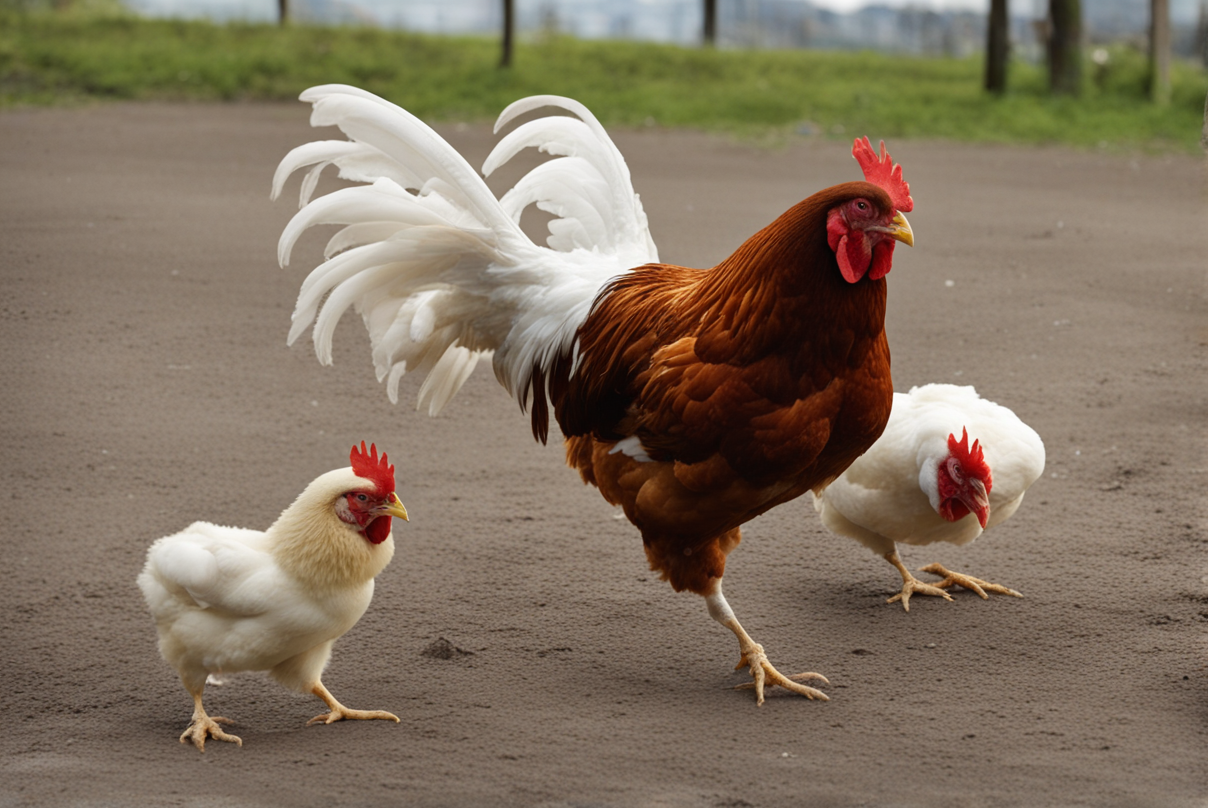
Their instinct is to remove the weak link for the overall health and safety of the group. I’ve seen this survival mentality firsthand on my farm.
One time a hawk snatched up one of our chickens and injured its leg. Afterwards, that chicken walked with a limp making it more vulnerable.
Right away, the other chickens started ganging up and pecking aggressively at the injured hen whenever they could.
It was like they saw the limp as a bullseye target and wanted to get rid of the “liability” from the flock.
Another example is when we had a chicken who developed respiratory issues and started making wheezing sounds when breathing.
The other chickens noticed right away and started isolating and attacking the sick hen. Within a day, she was pecked so badly she had bare patches with blood.
We had to remove her and put her in a separate sick bay to recover. But if we had left her, the flock would have eventually killed her to eliminate the perceived threat.
Chickens have finely tuned senses to detect even minor differences in appearance, sound, and behavior.
So when a chicken shows any signs of weakness or illness, the attack instinct kicks in to protect the health of the overall flock by any means necessary.
Their aggressive reaction also discourages predators like foxes who look for easy pickings. Going after the weak chicken signals loud and clear that this flock is strong and not to be messed with!
Signs of Sickness Trigger Aggression
Chickens have good innate senses to identify sickness in each other.
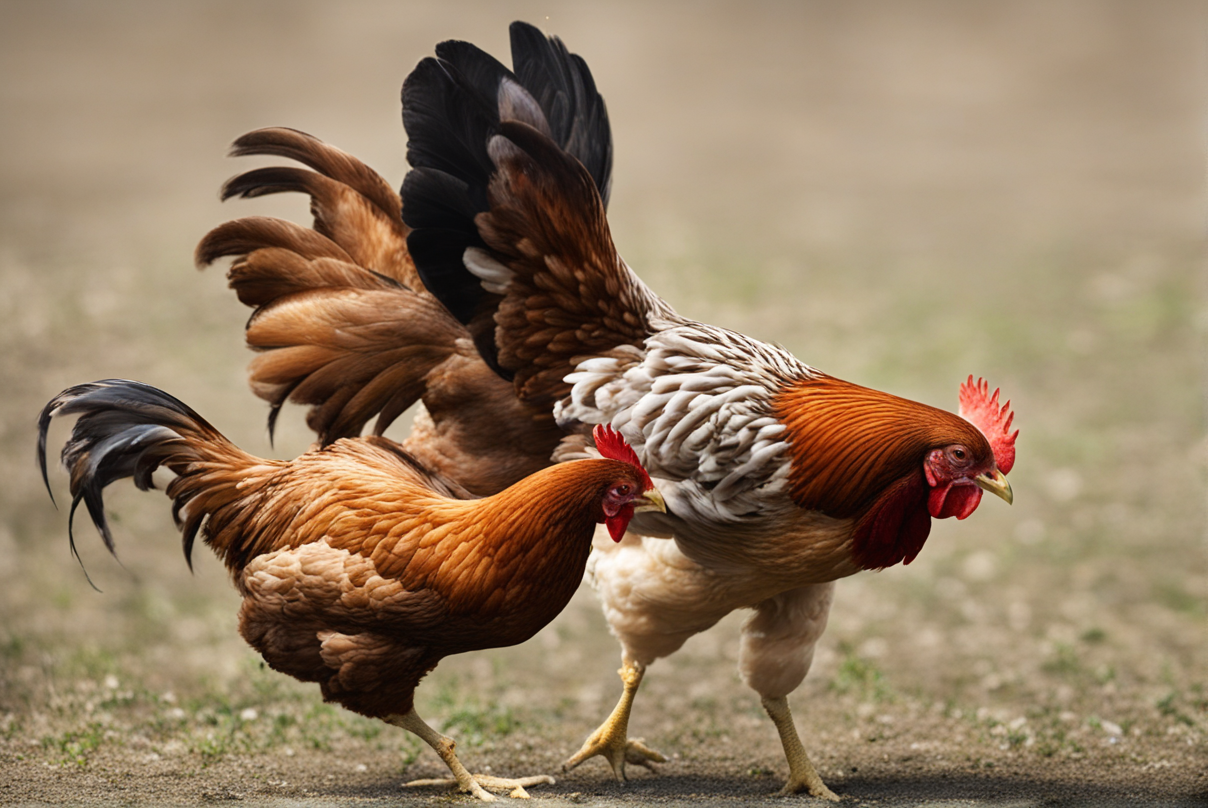
Even subtle cues we may barely notice will set off alarm bells for chickens. Here are some common signs that can trigger chickens to attack:
- Drooping or ruffled feathers
- Lethargy and moving slower than usual
- Sitting hunched up with eyes closed
- Weight loss or drop in appetite
- Pale wattle and comb
- Swelling around eyes/nose
- Sneezing, coughing, wheezing
- Diarrhea or changes in droppings
- Evidence of external injury or wounds
- Isolation from the flock
Chickens have strong observational skills and seem to quickly recognize deviations from normal flock behavior.
Sick chickens also release chemical signals through their saliva, feces and skin that alert others to their condition.
Even before obvious symptoms appear, chickens can detect these chemical cues.
In my experience, roosters often initiate attacks on sick or weak chickens. The rooster views it as his duty to monitor flock health and take action.
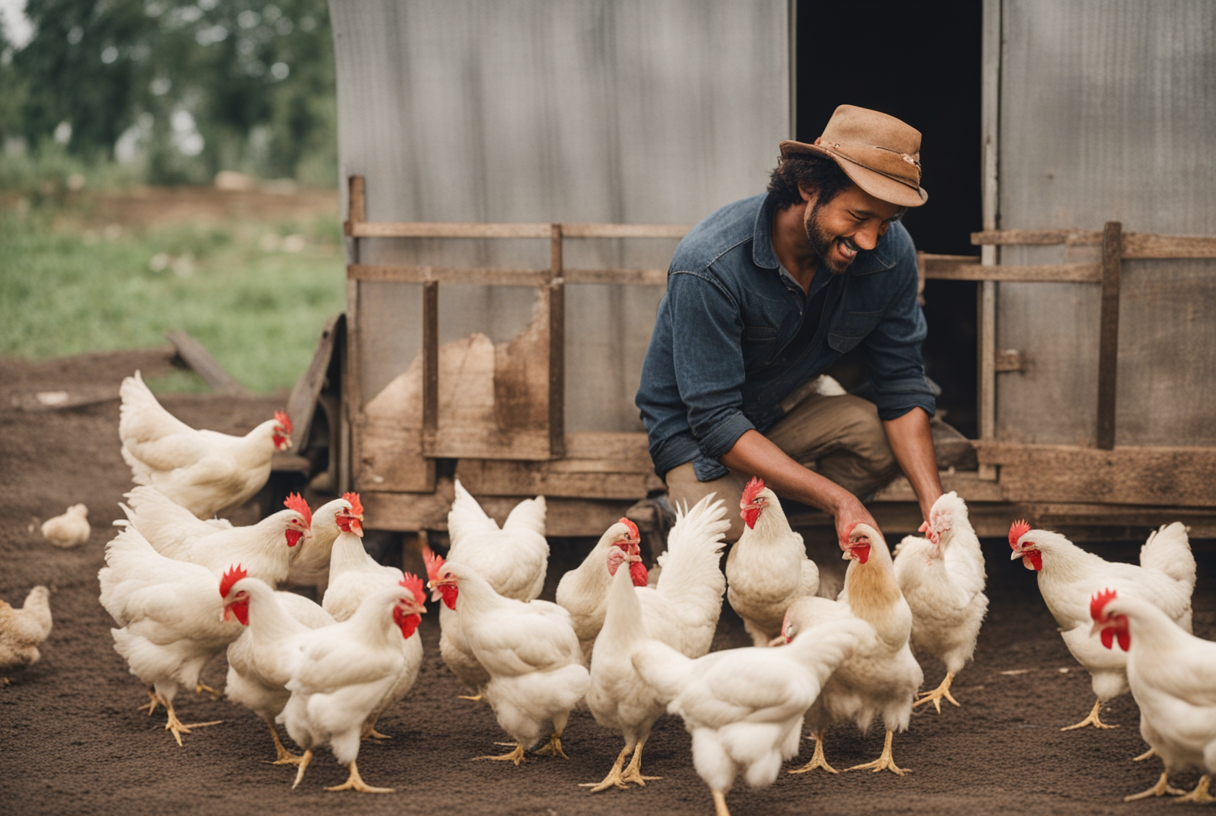
But hen chickens are not shy about ganging up on a vulnerable flockmate either. Once the attack starts, the frenzy can intensify rapidly with other chickens piling on.
They will peck, claw, jump on and even try to drown the sick chicken if near water. It’s brutal and intense with the goal being to drive out or even kill the chicken for the good of the flock.
The Pecking Order Phenomenon
It’s not just about who gets the best worm; it’s a matter of life and peck. Imagine you’re in a group of friends, each with a designated role.
Now, when a member falters, there’s a ripple effect, and that’s exactly what happens in the coop.
The alpha hens, strutting their stuff like the cool kids on campus, are quick to sense weakness. It’s like they’ve caught a whiff of vulnerability, and they’re not having it.
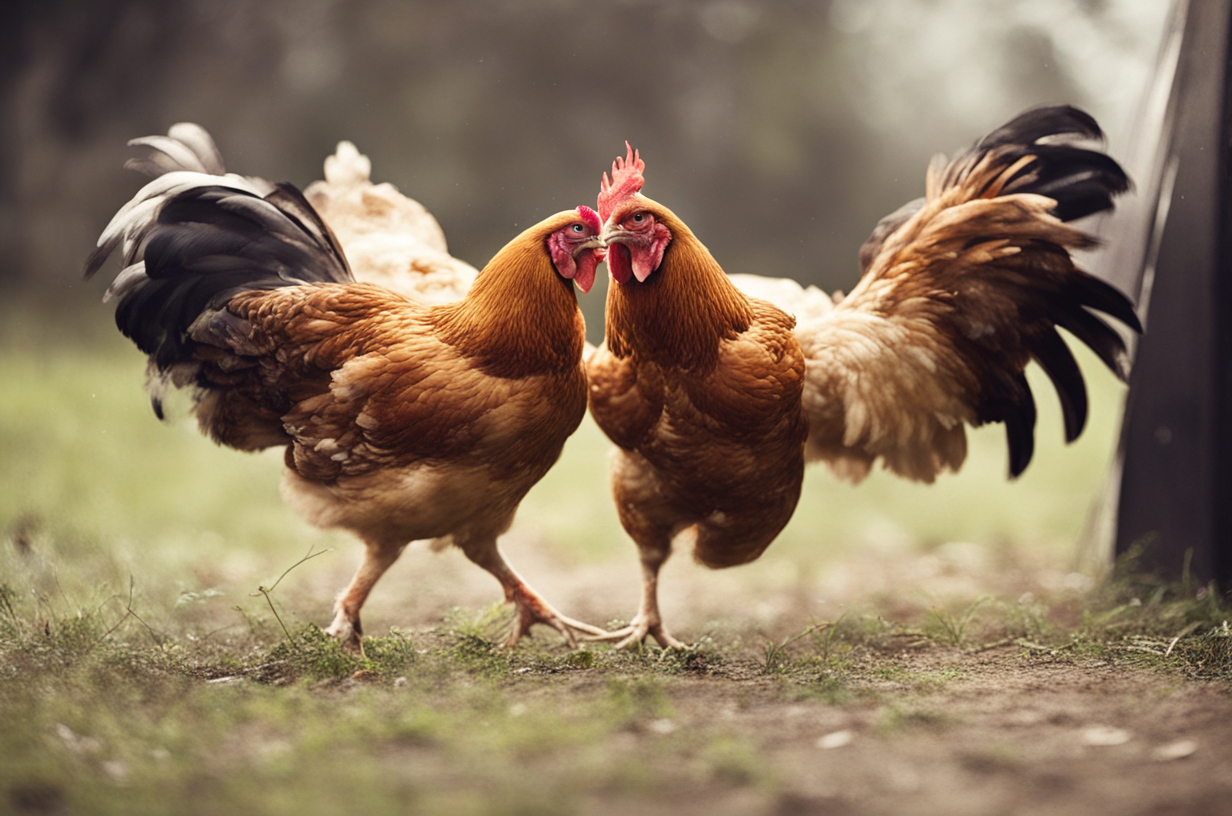
Their response?
A few assertive pecks to remind the sick one who’s boss. It’s nature’s way of maintaining order, even if it seems harsh to us humans.
Picture this: You’re the team captain, and suddenly someone on your squad starts slacking off.
You’d probably give them the side-eye too, right? Chickens, with their own pecking order playbook, do the same.
Decoding Chicken Body Language
Chickens may not have a secret handshake, but they sure communicate through body language that rivals any secret society.
When illness strikes, a chicken’s demeanor changes, signaling distress to its feathery comrades. It’s like sending out an SOS in the form of clucks and movements that scream, “I’m not at my best today!”
Now, imagine you’re in a meeting, and your colleague starts acting strangely, perhaps with a sudden bout of sneezing and groaning.
You’d probably worry, right? Chickens share the same concern for their flock mates. Unfortunately, their attempt at support sometimes translates into pecking as a misguided wake-up call.
It’s like your friend throwing water on you to keep you awake during a boring lecture—well-intentioned but not exactly the hero you needed.
Treating issues quickly and removing ill birds can help prevent the ruthless pecking attacks from the flock.
Chickens will be chickens, doing what their instincts tell them is necessary.
But we can outsmart their aggression through attentive care and swift response to health issues. Staying one step ahead makes for a happier, safer flock.
Survival of the Featheriest
In the wild, chickens are the ultimate survivalists, and these instincts linger even in our domesticated feathered friends.
When one member falls ill, it can trigger a flock-wide alarm. Think of it as a biological fire drill, with the healthy chickens responding like emergency responders, albeit with beaks instead of sirens.
The sick chicken, marked as a potential threat to the group’s safety, might face pecks as the flock attempts to remove the ‘risk.’
It’s a harsh but effective strategy that has evolved over generations.
In a way, it’s akin to your friends forcibly dragging you away from a questionable food truck because they swear it’s a stomachache waiting to happen.
In the chicken world, tough love takes on a whole new beak-and-feather dimension, emphasizing survival over sentiment.
Stressed Out in the Coop
Chickens, despite their stoic facade, are sensitive creatures. Imagine you’re having a bad day, and every minor inconvenience feels like a major catastrophe.
Chickens experience a similar stress response, and their coop environment plays a significant role in triggering aggressive behavior, especially towards the weaker members.
Overcrowded coops, sudden changes, or new additions can throw a wrench into the finely tuned machinery of the flock.
The result?
Chickens pecking at each other as a coping mechanism for the stressors around them. It’s like your friend losing it because they had to sit in the middle seat during a road trip. The stress is real, even if the cause seems trivial to us.
Prevention is Key
Since chickens are so aggressive towards ill flockmates, prevention is critical.
Here are some tips:
- Maintain excellent hygiene and dry bedding in coops
- Provide adequate space per chicken
- Ensure proper ventilation and reduce ammonia buildup
- Give chickens access to fresh air and sunlight
- Provide balanced feed with vitamins/minerals
- Keep vaccines updated to prevent disease
- Add calcium supplements for strong bones/egg shells
- Inspector chickens daily for any issues
- Isolate and treat any injured, bullied or sick birds
- Act fast at the first sign of illness to avoid attacks
Separating sick, weak and injured chickens into a treatment pen or hospital coop is crucial to protect them.
Chicken Attacking The Sick : Feathered Finale
Chickens will brutally attack their own kind at the first sign of weakness or illness.
It goes against our human instinct to nurture the sick, but chickens are simply hardwired to survive at any cost.
Recognizing vulnerable flockmates can trigger their primal need to eradicate dangers and maintain the health of the group.
As a chicken keeper, be vigilant and take action at the first hint of illness before the pecking starts!
Have a separate treatment area ready, and be prepared to enforce the “no bird left behind” rule if need be.
With knowledge of their behavior and proactive care, we can override their survival of the fittest mentality for the wellbeing of the entire flock.
